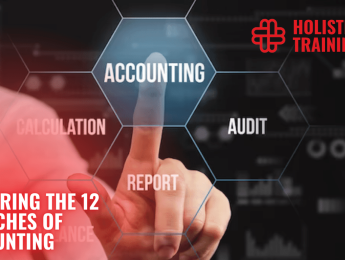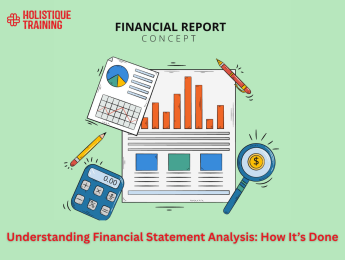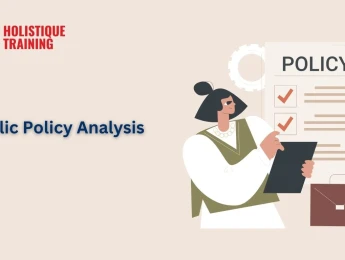- Table of Contents
- Introduction
- Exploring the 12 Branches of Accounting
- 1. Financial Accounting
- 2. Managerial Accounting
- 3. Tax Accounting
- 4. Auditing
- 5. Forensic Accounting
- 6. Social Accounting
- 7. Project Accounting
- 8. Governmental Accounting
- 9. International Accounting
- 10. Nonprofit Accounting
- 11. Fiduciary Accounting
- 12. Human Resources (HR) Accounting
- Understanding the 3 Main Types of Accounting
- 1. Financial Accounting
- 2. Managerial Accounting
- 3. Tax Accounting
- Diving into the 2 Accounting Methods
- 1. Cash Basis Accounting
- 2. Accrual Basis Accounting
- Finding Your Fit in the World of Accounting
- 1. Interests
- 2. Skills
- 3. Personality
- 4. Goals
- 5. Education and Training
- The Rise of Technology in Accounting
- Automation
- AI-powered Analytics
- Blockchain
- Data Security
- The Ethical Dimension of Accounting
- Ethical Dilemmas
- Professional Codes of Conduct
- Whistleblowing
- Ethics Training
- The Future of Accounting: Remote Work and Globalisation
- Remote Work
- Globalisation
- Cultural Competence
- Cybersecurity Challenges
- Conclusion
Introduction
Accounting is the backbone of every business and organisation. It plays a pivotal role in recording, analysing, and communicating financial information, enabling effective decision-making and ensuring regulatory compliance. But did you know that accounting is not a monolithic field? It is composed of various branches, each with its unique functions and focus. In this comprehensive guide, we will delve into the intricate world of accounting branches, exploring their roles, types, and methods, and help you discover where you might fit in.
Exploring the 12 Branches of Accounting
Accounting can be likened to a multifaceted gem, with each branch representing a different facet that contributes to the overall understanding of an organisation's financial health. Let's dive deep into each of the 12 main branches of accounting, shedding light on their functions, significance, and the skills they require.
1. Financial Accounting
Function: This branch is the bedrock of accounting, involving the systematic recording of financial transactions to create accurate financial statements. Financial accountants meticulously document income, expenses, assets, and liabilities to generate statements like the income statement, balance sheet, and statement of cash flows. These statements provide a clear snapshot of a company's financial position, allowing investors, creditors, and other external stakeholders to assess its performance and stability.
Skills Required: Attention to detail, precision, adherence to accounting standards, and strong analytical abilities.
2. Managerial Accounting
Function: Often referred to as cost accounting, managerial accounting is focused on providing internal management with the information needed to make informed decisions. Managerial accountants delve into cost analysis, budgeting, forecasting, and performance evaluation. They create reports that help management allocate resources efficiently, evaluate project profitability, and strategise for growth.
Skills Required: Analytical thinking, strategic planning, and the ability to communicate financial information effectively to internal stakeholders.
3. Tax Accounting
Function: Taxation is a complex realm that requires specialised knowledge. Tax accountants navigate the ever-changing landscape of tax laws and regulations, ensuring organisations comply with tax obligations while minimising their tax liabilities. They play a crucial role in preparing and filing accurate tax returns, claiming deductions and credits, and handling tax-related audits.
Skills Required: In-depth knowledge of tax laws, attention to detail, and the ability to stay up-to-date with changing regulations.
4. Auditing
Function: Auditors serve as financial detectives, meticulously examining an organisation's financial records to verify their accuracy and reliability. External auditors assess financial statements for accuracy and adherence to accounting standards. Internal auditors, on the other hand, evaluate internal controls, assess operational efficiency, and identify potential risks. Their work bolsters transparency and accountability.
Skills Required: Strong analytical skills, critical thinking, and the ability to identify discrepancies and anomalies.
5. Forensic Accounting
Function: This branch combines financial expertise with investigative skills. Forensic accountants are akin to financial detectives who unearth financial irregularities, fraud, and misconduct. They analyse financial data to reconstruct financial transactions, trace funds, and gather evidence for legal proceedings or internal investigations.
Skills Required: Investigative prowess, attention to detail, and the ability to unravel complex financial schemes.
6. Social Accounting
Function: In an era of increased corporate social responsibility, social accounting has gained prominence. Also known as sustainability accounting, this branch assesses an organisation's social and environmental impact. Social accountants quantify and communicate a company's efforts toward sustainability, social responsibility, and ethical business practices.
Skills Required: Understanding of sustainability metrics, ethical considerations, and the ability to communicate social impact effectively.
7. Project Accounting
Function: Industries like construction and consulting often involve numerous projects with distinct financial requirements. Project accountants track the financial progress of individual projects, ensuring that they remain within budget and generate the expected revenue. They monitor project expenses, revenue recognition, and cost allocations to optimise project profitability.
Skills Required: Project management skills, cost analysis, and the ability to juggle multiple financial aspects simultaneously.
8. Governmental Accounting
Function: Government entities operate under unique financial frameworks. Governmental accountants handle public funds, adhering to accounting standards specific to the public sector. They ensure transparent financial reporting, track public expenditures, and manage the intricacies of fund accounting.
Skills Required: Knowledge of public sector accounting regulations, attention to compliance, and the ability to manage public funds responsibly.
9. International Accounting
Function: In our interconnected global economy, international accountants navigate the complexities of accounting across borders. They contend with varying regulatory frameworks, currencies, and financial reporting standards. Their expertise is vital for multinational corporations and organisations operating in multiple countries.
Skills Required: Cross-cultural awareness, knowledge of international accounting standards, and the ability to adapt to diverse financial environments.
10. Nonprofit Accounting
Function: Nonprofit organisations have distinct accounting needs due to their tax-exempt status. Nonprofit accountants manage donations, grants, and other sources of funding, while also ensuring compliance with regulations specific to nonprofits. Their work supports the financial sustainability of organisations driven by social missions.
Skills Required: Knowledge of nonprofit regulations, grant management, and a commitment to the organisation's mission.
11. Fiduciary Accounting
Function: Fiduciaries manage assets on behalf of others, often involving trusts, estates, and investments. Fiduciary accountants ensure these assets are properly managed, accounted for, and distributed in accordance with legal requirements and the beneficiaries' best interests.
Skills Required: Legal knowledge, trust management, and the ability to navigate complex financial arrangements.
12. Human Resources (HR) Accounting
Function: HR accountants handle the financial aspects related to employees. They manage payroll, benefits, and compensation, ensuring accurate and compliant compensation for employees. Their work is crucial for maintaining a motivated and productive workforce.
Skills Required: Knowledge of employment laws, payroll management, and strong organisational skills.
Table 1: A quick comparison of accounting branches
Branch | Primary Focus | Skills Required | Industry Application |
Financial Accounting | External Financial Reporting | Attention to Detail, Analysis | All Industries, Public and Private |
Managerial Accounting | Internal Decision Support | Analytical Thinking, Communication | All Industries, Private Sector |
Tax Accounting | Tax Compliance and Optimisation | Tax Law Knowledge, Compliance | All Industries, Public and Private |
Auditing | Financial Statement Assurance | Analytical Skills, Attention | Public Accounting Firms, Corporations |
Forensic Accounting | Financial Investigation | Investigative Skills, Attention | Legal and Investigative Organisations |
Social Accounting | Sustainability and Ethics | Sustainability Metrics, Communication | Sustainable and Ethical Businesses |
Project Accounting | Project Financial Management | Project Management, Cost Analysis | Construction, Consulting, Engineering |
Governmental Accounting | Public Sector Financial Reporting | Public Sector Regulations, Compliance | Government and Public Sector |
International Accounting | Cross-Border Financial Reporting | International Standards, Adaptability | Multinational Corporations, Global Orgs |
Nonprofit Accounting | Nonprofit Financial Management | Nonprofit Regulations, Grants | Nonprofit Organisations |
Fiduciary Accounting | Trusts and Estates Management | Legal Knowledge, Trust Management | Legal and Financial Firms, Trusts |
HR Accounting | Employee Compensation Management | Payroll, HR Laws, Organisational Skills | All Industries, HR Departments |
Understanding the 3 Main Types of Accounting
In addition to exploring the diverse branches of accounting, it's essential to comprehend the three main types of accounting, as they form the foundation upon which these branches are built. These types cater to distinct needs and serve critical roles in the financial landscape of organisations. Let's delve deeper into each of these types:
1. Financial Accounting
External-Facing Transparency
Financial accounting is primarily concerned with producing accurate and transparent financial statements for external stakeholders, including investors, creditors, regulatory bodies, and the general public. These statements, such as income statements, balance sheets, and cash flow statements, offer a comprehensive overview of a company's financial health.
Compliance and Reporting
A significant focus of financial accounting is compliance with generally accepted accounting principles (GAAP) or international financial reporting standards (IFRS). Adherence to these standards ensures consistency and comparability in financial reporting across industries and countries.
Investor Confidence
Financial accounting plays a pivotal role in building investor confidence. When stakeholders can trust the accuracy and transparency of financial statements, they are more likely to invest in or extend credit to an organisation.
Historical Perspective
Financial accounting primarily deals with past financial transactions and events. It provides a historical perspective on a company's financial performance, making it valuable for assessing its financial stability and past decision-making.
2. Managerial Accounting
Internal Decision Support
Managerial accounting, also known as cost accounting, focuses on providing internal management with the information necessary for decision-making, budgeting, and performance evaluation. Unlike financial accounting, which is primarily for external parties, managerial accounting is geared towards assisting managers in optimising operations.
Cost Analysis and Budgeting
Managerial accountants delve into cost analysis, budget preparation, forecasting, and performance evaluation. They help managers allocate resources efficiently, identify cost-saving opportunities, and set realistic financial goals.
Strategic Insights
Through managerial accounting, management gains insights into product profitability, cost behaviour, and strategic planning. This information empowers them to make informed decisions that drive the organisation's growth and profitability.
Real-Time Data
Unlike financial accounting, which deals with historical data, managerial accounting often involves real-time or frequent reporting. This immediacy allows managers to respond quickly to changing business conditions and make timely adjustments.
3. Tax Accounting
Tax Compliance and Optimisation
Tax accounting centres around tax-related matters, ensuring organisations comply with tax laws and regulations while minimising their tax liabilities. Tax accountants navigate the ever-changing tax landscape to optimise an organisation's financial position.
Complexity of Tax Laws
Taxation is a complex and dynamic realm with numerous regulations, deductions, and credits. Tax accountants must stay up-to-date with these changes to ensure compliance and take advantage of tax-saving opportunities.
Strategic Tax Planning
Tax accounting goes beyond tax compliance; it includes strategic tax planning. Accountants work closely with businesses to structure transactions, investments, and financial decisions in a tax-efficient manner, ultimately reducing the tax burden.
Tax Reporting and Filings
Tax accountants play a crucial role in preparing and filing accurate tax returns, handling tax audits, and addressing any tax-related inquiries or disputes. Their expertise ensures that organisations meet their tax obligations while mitigating risks.
Diving into the 2 Accounting Methods
In addition to comprehending the diverse branches and types of accounting, it's vital to grasp the two primary accounting methods: cash basis and accrual basis. These methods dictate how financial transactions are recorded, impacting the timing and accuracy of financial reporting. Let's explore each method in detail:
1. Cash Basis Accounting
Timing of Transactions
Cash basis accounting records transactions when cash physically changes hands. This approach is straightforward and suitable for small businesses with simple financial transactions. It mirrors everyday cash management, making it easy to understand.
Simplicity and Clarity
Cash basis accounting provides a clear, real-time view of the actual cash flows within a business. This simplicity is advantageous for businesses with straightforward income and expense structures.
Small Business Fit
Small businesses often prefer cash basis accounting because it aligns with their immediate cash flow needs. It allows them to track their cash position accurately and make day-to-day financial decisions based on cash availability.
Limitations for Larger Enterprises
However, cash basis accounting has limitations, particularly for larger enterprises with more complex financial operations. It may not accurately represent the financial health of a company with significant credit-based operations, as it ignores transactions that haven't involved cash yet.
2. Accrual Basis Accounting
Timing of Transactions
Accrual basis accounting, in contrast, records transactions when they occur, regardless of when cash changes hands. This method aligns with the accounting principle of revenue recognition, where revenue is recognised when earned and expenses when incurred.
Accuracy and Matching
Accrual basis accounting provides a more accurate depiction of a company's financial situation. By recognising revenue and expenses when they occur, it ensures that financial statements reflect the economic reality of the business, even if cash hasn't exchanged hands yet.
Complex Transactions
This method is particularly valuable for larger businesses with credit transactions, complex sales cycles, or long-term contracts. It allows them to accurately track their financial performance over time, including outstanding receivables and payables.
GAAP Compliance
Generally accepted accounting principles (GAAP) often require larger businesses to use accrual basis accounting for financial reporting. This is because it aligns with the principles of fairness, transparency, and comparability.
Complexity
While accrual basis accounting offers a more accurate picture, it can be more complex to manage. Accountants must track accounts receivable, accounts payable, and deferred revenue, making the financial statements more intricate.
Impact on Decision-Making
Accrual basis accounting provides management with a more comprehensive view of the business's performance. It helps in long-term strategic planning and decision-making, allowing organisations to assess their financial health and make informed choices based on a holistic understanding of their financial position.
Finding Your Fit in the World of Accounting
With such a diverse array of branches and types, how can you determine which aspect of accounting suits you best? Consider the following factors:
1. Interests
Delve Deeper
Take the time to explore your interests within the field of accounting. Are you fascinated by the intricate details of financial statements, or do you thrive on solving complex financial puzzles? Maybe you are drawn to the idea of ensuring legal compliance in the ever-evolving world of taxation.
Career Exploration
Consider seeking internships or entry-level positions in various accounting branches to gain hands-on experience. This practical exposure can help you discern which area aligns best with your interests.
Passion-Driven Choice
Your passion for a particular aspect of accounting can be a powerful motivator. When you genuinely enjoy your work, you are more likely to excel in your chosen branch.
2. Skills
Self-Assessment
Evaluate your skills objectively. Are you exceptionally detail-oriented, or do you possess strong analytical abilities? Different branches require distinct skill sets, so aligning your skills with your chosen branch is essential.
Skill Development
If you identify gaps in your skillset, don't be discouraged. Many accounting branches offer opportunities for skill development through courses, certifications, and on-the-job training. Investing in your skill enhancement can make you a more competitive candidate in your chosen field.
3. Personality
Inherent Traits
Your personality traits can significantly influence your career satisfaction in accounting. Are you naturally inclined towards investigative work, where attention to detail and persistence are essential? Or do you thrive in roles that involve social impact, where ethical considerations and communication skills come to the fore?
Alignment with Values
Consider whether the values associated with a particular accounting branch align with your personal values. For instance, if you are passionate about environmental sustainability, social accounting may resonate with you.
4. Goals
Long-Term Vision
Think about your long-term career goals. Do you envision yourself working in a corporate setting, where managerial accounting could be an excellent fit? Or do you aspire to contribute to society through a nonprofit organisation, making nonprofit accounting a fulfilling choice?
Diverse Career Paths
Keep in mind that the accounting field offers diverse career paths. You can start in one branch and transition to another as your career progresses. Your initial choice need not be your lifelong commitment, and your goals can evolve over time.
5. Education and Training
Educational Path
Research the educational requirements for your chosen branch. Some branches may necessitate specific qualifications or certifications. Understanding the educational path needed for your preferred field can help you plan your academic journey effectively.
Continual Learning
Recognise that accounting is a dynamic field, with evolving regulations and technologies. Commit to lifelong learning to stay current and adaptable. Pursuing advanced certifications or attending workshops can enhance your knowledge and career prospects.
The Rise of Technology in Accounting
In recent years, the world of accounting has been significantly influenced by technological advancements. The integration of automation, artificial intelligence (AI), and data analytics has revolutionised the accounting landscape. Today, accountants are not only number-crunchers but also data analysts and tech-savvy professionals.
Automation
Accounting software like QuickBooks and Xero have automated many manual tasks, such as data entry and reconciliations. This not only reduces errors but also frees up accountants to focus on more strategic aspects of their work.
AI-powered Analytics
AI algorithms can analyse vast datasets in seconds, providing valuable insights into financial trends and anomalies. For instance, AI can help identify potential fraud by flagging unusual transactions or patterns.
Blockchain
The emergence of blockchain technology has the potential to transform auditing. Blockchain's transparency and immutability make it easier to trace financial transactions, reducing the risk of fraud and errors.
Data Security
With sensitive financial data being digitised, cybersecurity has become paramount. Accountants need to be well-versed in cybersecurity practices to protect their clients' financial information.
The Ethical Dimension of Accounting
Ethics is a critical aspect of the accounting profession. Accountants are entrusted with confidential financial data, and their actions can have far-reaching consequences. Recent high-profile accounting scandals have underscored the importance of ethical conduct in the field.
Ethical Dilemmas
Accountants often face ethical dilemmas, such as whether to report financial irregularities, maintain client confidentiality, or ensure compliance with accounting standards. Navigating these dilemmas requires strong moral judgement.
Professional Codes of Conduct
Professional accounting bodies, such as the American Institute of Certified Public Accountants (AICPA) and the International Federation of Accountants (IFAC), have established codes of conduct that outline ethical responsibilities for accountants.
Whistleblowing
Whistleblower protection laws have gained prominence, encouraging individuals to report unethical behaviour within organisations without fear of retaliation. Accountants may find themselves in situations where they need to blow the whistle to uphold ethical standards.
Ethics Training
Many educational programmes and organisations offer ethics training for accountants, emphasising the importance of integrity, objectivity, and professional scepticism.
The Future of Accounting: Remote Work and Globalisation
The accounting profession has adapted to significant changes in work dynamics, primarily accelerated by the COVID-19 pandemic. Remote work has become the norm for many accountants, and globalisation has expanded the reach and scope of accounting services.
Remote Work
With the advent of cloud-based accounting software and secure digital communication tools, accountants can collaborate with clients and colleagues from anywhere in the world. This flexibility has allowed for better work-life balance and broader talent recruitment.
Globalisation
As businesses expand globally, the demand for accountants with international expertise has grown. International accountants play a crucial role in helping organisations navigate complex tax laws, currency exchange, and financial reporting standards across borders.
Cultural Competence
Accountants working in global contexts must also be culturally competent, understanding the cultural nuances that can impact financial practices and business negotiations.
Cybersecurity Challenges
With remote work, the need for robust cybersecurity measures has intensified. Accountants must stay updated on cybersecurity best practices to protect sensitive financial data when working across borders.
Conclusion
Accounting is a multifaceted field with numerous branches, each serving a distinct purpose. From financial and managerial accounting to tax, auditing, and more, these branches work together to paint a comprehensive picture of an organisation's financial health. By understanding the types of accounting, the different methods, and your personal interests and skills, you can navigate this intricate world and find your perfect fit in the realm of accounting. So, whether you're a number enthusiast, an analytical thinker, or a problem solver, there's a branch of accounting that welcomes your expertise and passion.
If the intriguing world of forensic accounting catches your interest, don't miss the opportunity to explore it further through our course ‘Introduction to Forensic Auditing,’ where you can uncover the secrets of financial investigations and become a skilled financial detective. Enrol today!




























